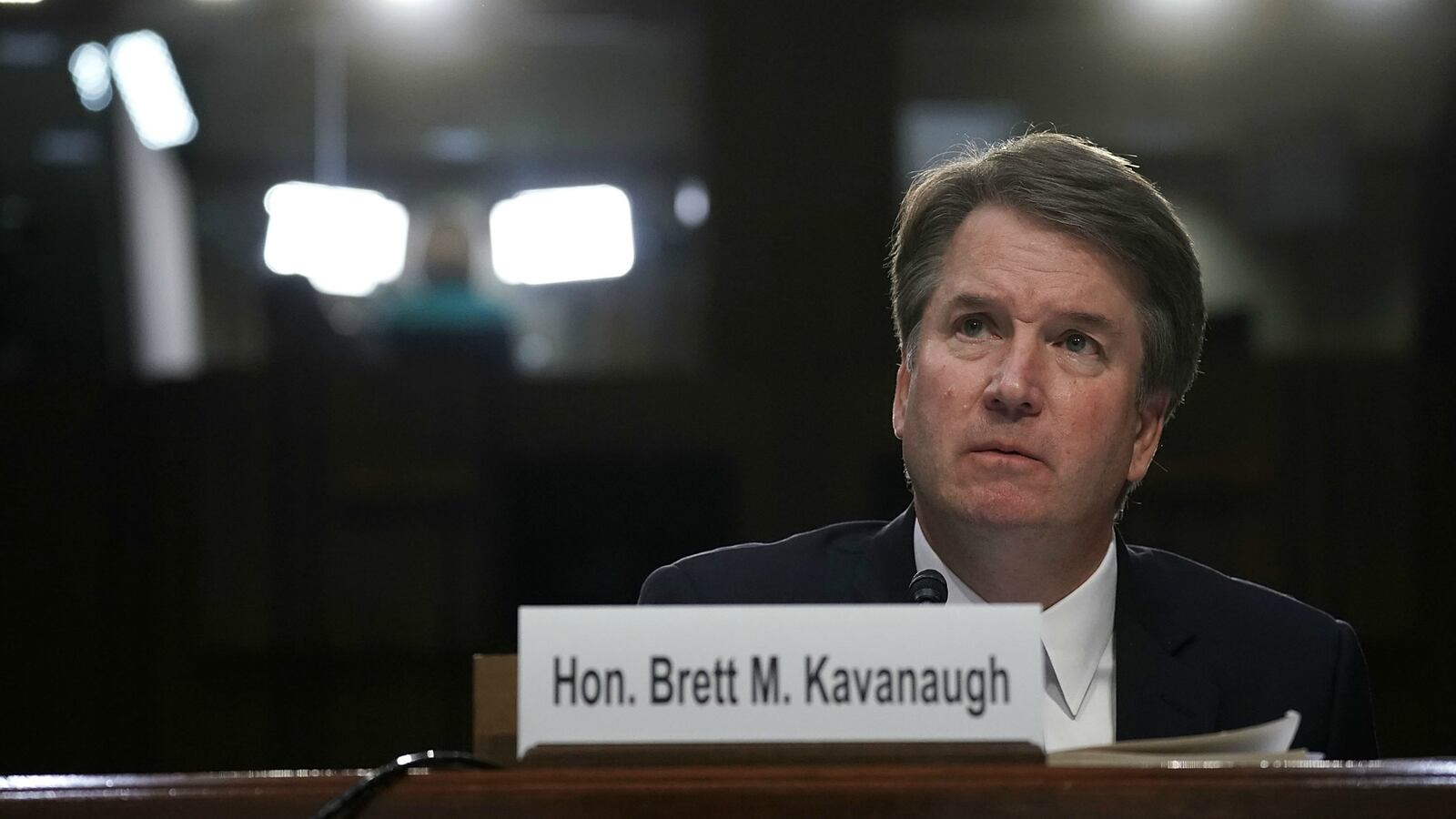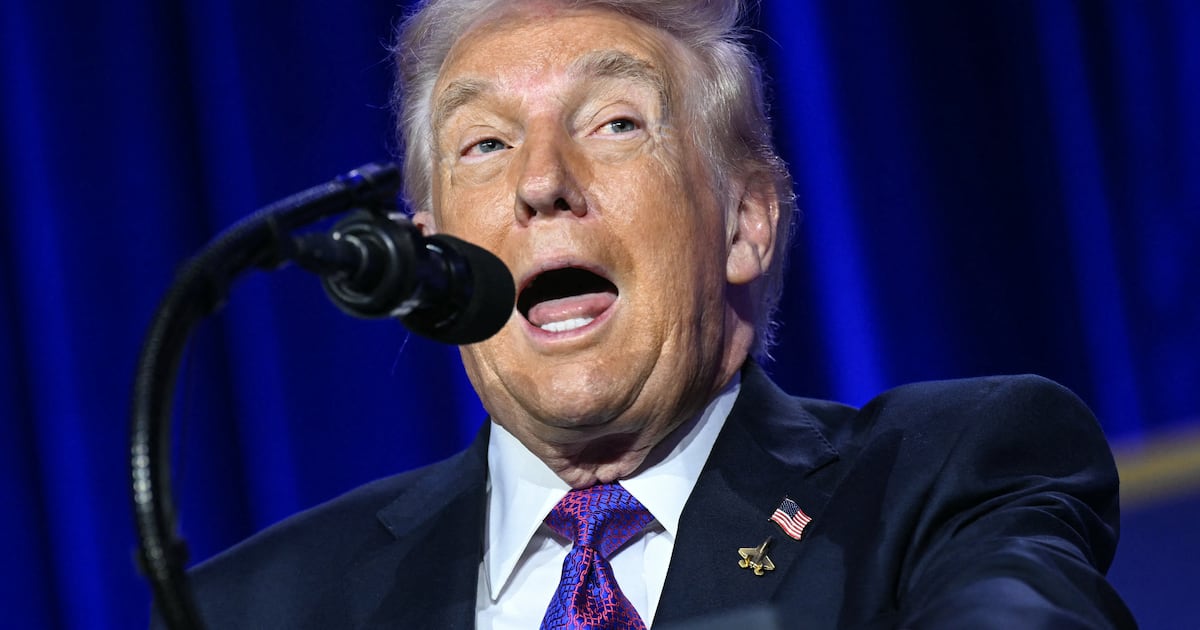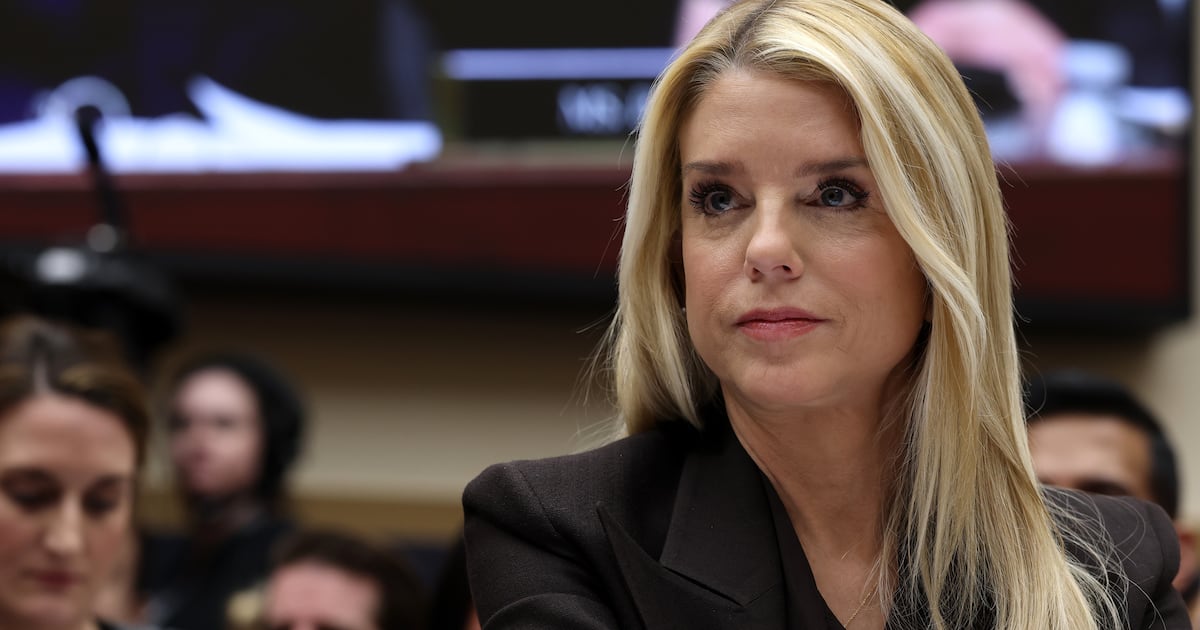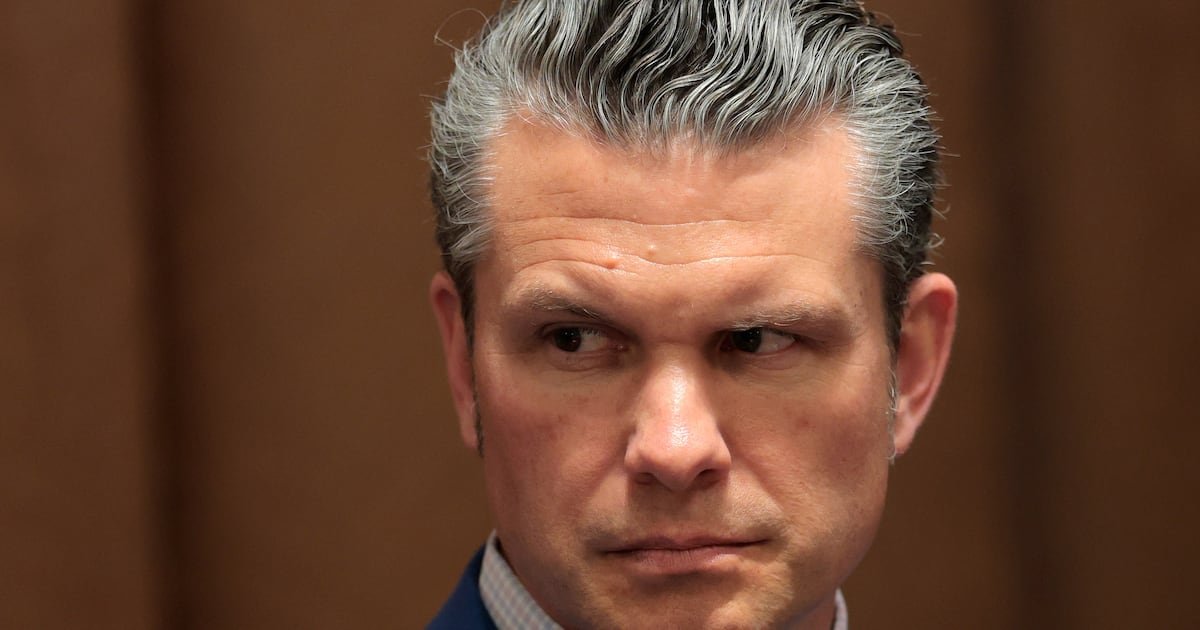The woman who wrote the letter alleging that Supreme Court nominee Brett Kavanaugh sexually assaulted her when they were in high school came forward on Sunday, detailing the incident to The Washington Post and providing contemporaneous notes and the results of a polygraph test in an effort to back her claims.
“I thought he might inadvertently kill me,” 51-year-old Christine Blasey Ford said in describing an alleged encounter she laid out in letter to Rep. Anna Eshoo (D-CA) in late July. The contents of the letter had remained secret until Sunday.
Ford alleges that Kavanaugh and a friend were “stumbling drunk” inside a Maryland home when the pair took her into a bedroom. Ford said Kavanaugh pinned her down and began groping her and, as the Post describes it, “grinding his body against hers and clumsily attempting to pull off her one-piece bathing suit and the clothing she wore over it.” Kavanaugh put his hand over her mouth when she screamed, Ford says.
“He was trying to attack me and remove my clothing,” she recounted.
Eshoo sent Ford’s letter to Sen. Dianne Feinstein (D-CA), the top Democrat on the Senate Judiciary Committee, after receiving it. Last week, Feinstein referred it to the FBI, and it was added to Kavanaugh’s background file. Republicans have noted that the allegation did not come up during Kavanaugh’s public confirmation hearing, the closed-door questioning session, or the written-response period.
“From the outset, I have believed these allegations were extremely serious and bear heavily on Judge Kavanaugh’s character,” Feinstein said in a statement Sunday. “However, as we have seen over the past few days, they also come at a price for the victim. I hope the attacks and shaming of her will stop and this will be treated with the seriousness it deserves.”
Ford, a registered Democrat and a psychologist who lives in northern California, said she attended couples therapy with her husband in 2012, which was the first time she described the alleged incident in detail. The Post obtained some of the therapist’s notes, which mentioned that her alleged attacker was among the “highly respected and high-ranking members of society in Washington.” Kavanaugh’s name did not appear in the notes.
“I categorically and unequivocally deny this allegation,” Kavanaugh has said. “I did not do this back in high school or at any time.”
Ford took a polygraph test in August on the advice of her lawyer, Debra Katz, and the test showed that her account was truthful. Ford contacted the Post via its tip line in July, but was initially hesitant to go public due to family concerns.
“Now I feel like my civic responsibility is outweighing my anguish and terror about retaliation,” Ford said in explaining why she decided to go public. She acknowledged that she could not recall key details of the alleged incident, including exactly when and where it occurred.
As some information about the allegation was leaked last week, the Senate Judiciary Committee released a letter from 65 women who knew Kavanaugh in high school and attested to his “friendship, character, and integrity.” The letter reads, in part: “In particular, he has always treated women with decency and respect. That was true when he was in high school, and it has remained true to this day.”
The Senate Judiciary Committee is scheduled to vote on Kavanaugh's nomination on Thursday. The Republican side of the committee went on the defensive on Sunday.
“It’s disturbing that these uncorroborated allegations from more than 35 years ago, during high school, would surface on the eve of a committee vote after Democrats sat on them since July,” spokesman Taylor Foy said in a statement. “If Ranking Member Feinstein and other Committee Democrats took this claim seriously, they should have brought it to the full Committee’s attention much earlier.”
The committee later said it would set up “follow-up calls with Judge Kavanaugh and Dr. Ford ahead of Thursday’s scheduled vote.”
Democrats, though, want Sen. Chuck Grassley (R-IA), the chairman of the committee, to postpone the vote until Ford’s allegations are investigated.
“To railroad a vote now would be an insult to the women of America and the integrity of the Supreme Court,” Senate Minority Leader Chuck Schumer (D-NY) said in a statement.
Later Sunday, Sen. Jeff Flake (R-AZ) said the committee should not move ahead with its scheduled vote on Thursday until senators hear directly from Ford.
“For me, we can’t vote until we hear more,” Flake, a member of the committee, told The Washington Post.






